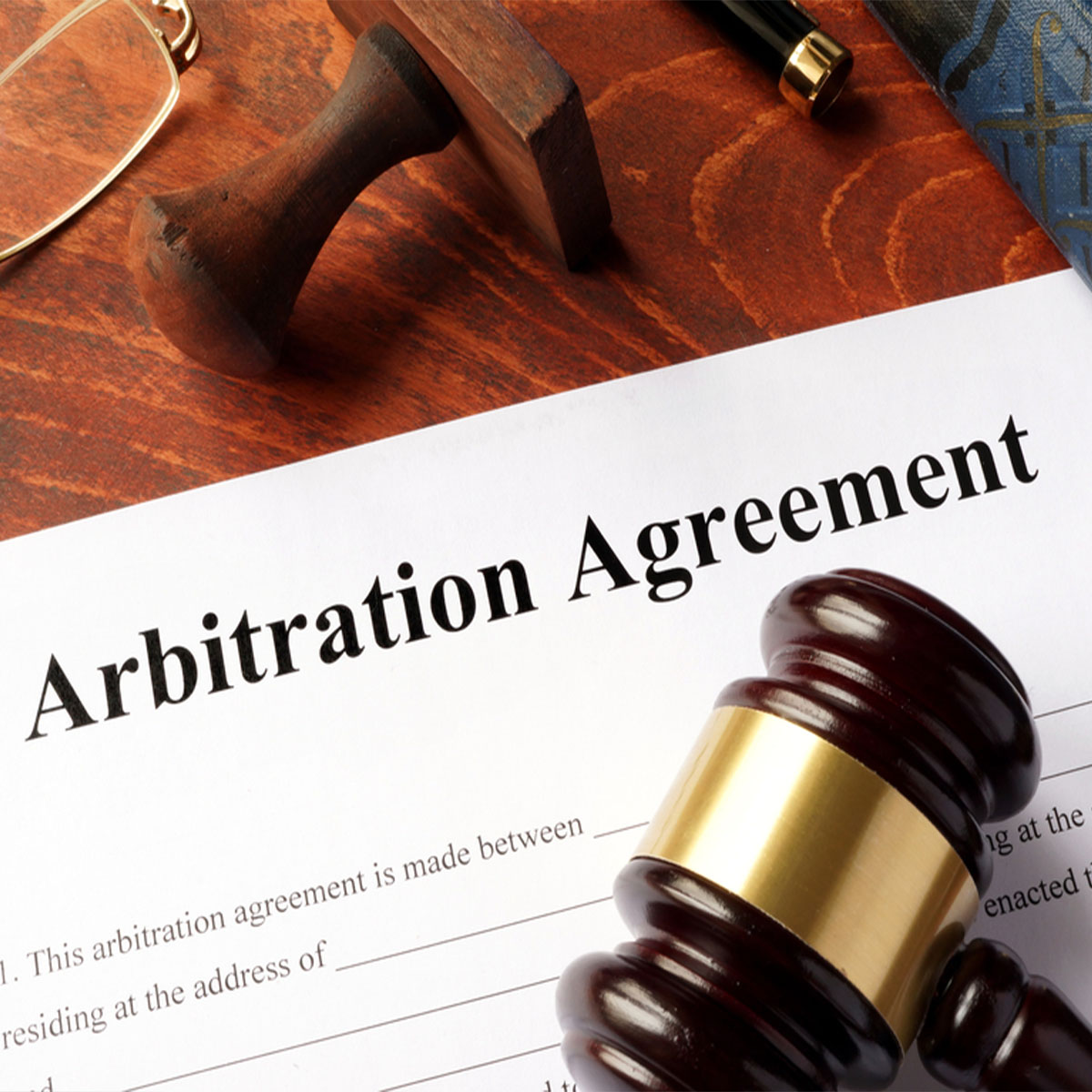There are certain means for dispute settlement that may be more effective now than the ordinary litigation process. These means are known also as alternative dispute resolution (ADR) which includes arbitration and reconciliation, etc. Arbitration is a contract-based method of (ADR). In other words, a party's right to refer a dispute to arbitration is contingent on the existence of an agreement (the "arbitration agreement") between the parties, that enables the contracting parties the right to resort to arbitration when a dispute arises.
Commercial contracts will usually include provisions for resolving contract-related disputes. If the parties opt to refer any dispute to arbitration, the arbitration agreement is usually included in their main commercial Agreement. However, even if the parties did not initially agree on such a method, the parties can also still agree to execute an arbitration agreement thereafter to solve an existing dispute.
When the parties enter an arbitration agreement, they agree to bring any issue or dispute to a neutral tribunal to consider and preserve their rights. Arbitration is not the same as mediation or conciliation, despite the fact that it is commonly referred to as a kind of alternative dispute resolution (ADR). A mediator or conciliator can only make suggestions, and the parties have the option of accepting or rejecting that advice. However, an arbitration panel, on the other hand, has the authority to make binding awards to the parties thereto.
The Arbitration Agreement:
This agreement will govern essential aspects of the procedures. Such as, the numbers of the arbitrators, the selection of the ‘seat of the arbitration and ‘the arbitration venue’ which possibly can be different, the process of the arbitrator’s selection and if the parties agree to an institutional arbitration or "ad hoc" arbitration. All of these variables can have a substantial impact on the length and expense of the arbitration.
The Initiation of Arbitration
Since Arbitration is a contract-based dispute resolution method, the parties may agree to certain steps that must be undertaken before commencing the arbitration. These steps can involve meetings between seniors from the two companies to try to settle the dispute, or the parties can select mediation as a previous step as well.
Afterward, the claimant would normally initiate arbitration by delivering its opponent a “request for arbitration” or a “notice to arbitrate”.
Additionally, if the parties agreed on an institutional arbitration, the procedures to initiate arbitration will be done in accordance with the respective arbitration rules.
Furthermore, if the arbitration agreement requires a disputing party to propose an arbitrator, the notice shall identify the opted arbitrator. The opponent party (or parties) will then have the option to react shortly within a given time frame and nominate an arbitrator as well.
The Subsequent Proceedings:
The tribunal must be legitimately formed, for example, if there are three arbitrators in a two-party dispute, each side will normally choose one arbitrator. A third arbitrator will be chosen by the nominees or the arbitral institution to serve as chair (the presiding arbitrator). In case there are more than two parties, the agreement or the rules of the arbitral institution will normally specify the method for selecting the tribunal.
The procedures and timeframe must be agreed on between the parties and the tribunal. Both should be tailored to the specific needs of the dispute.
Arbitration Procedures:
The arbitration will next continue in line with the adopted procedures under the selected rules. It is expected that each party will provide written submissions. Usually, they will be supplemented by written witness testimonies and, where needed, technical expert reports.
It frequently entails the exchanging of briefs and documents between the tribunal and litigants themselves. These will comprise documents on which they rely as well as records that the other parties were requested them to be furnished. It is critical to access the services of a legal counsel early in order to manage the process as effectively as possible.
The Hearings:
Arbitrations often comprise one or more hearings before the tribunal, during which the parties' attorneys present arguments and cross-review the submissions of the opposing party's witnesses and experts. Hearings can run for a half-day and up to several weeks or even months, depending on the matter at hand.
The Arbitral Award:
Following the hearings, the tribunal will issue its award. This will include the final decision taken by the Tribunal on the subject matter and the issue arisen between the parties. The award determines the parties' rights and liabilities unless one of the parties decided to challenge the award.
Challenging the Arbitral Award:
The grounds for challenging or appealing an award differ based on variables such as the wording of the arbitration agreement, the arbitral seat, and the institutional rules. The factual findings of a tribunal are rarely challenged. However, if the tribunal did not conduct itself correctly, answered questions it should not have answered, or made an error of law, a party can move to court and seek for the award to be abolished or referred back to the tribunal to properly reconsider the same.
Enforcing the Arbitral Award:
One of the primary benefits of arbitration is that verdicts may usually be implemented in most nations throughout the world, without having the need to reconsider the case subject matter, within a very straightforward process. The basis of the award enforcement differs based on elements such as:
The jurisdiction where the award will most likely be executed, the status of the party seeking the enforcement thereof, for example, some assets may be protected from execution under the law provisions.










